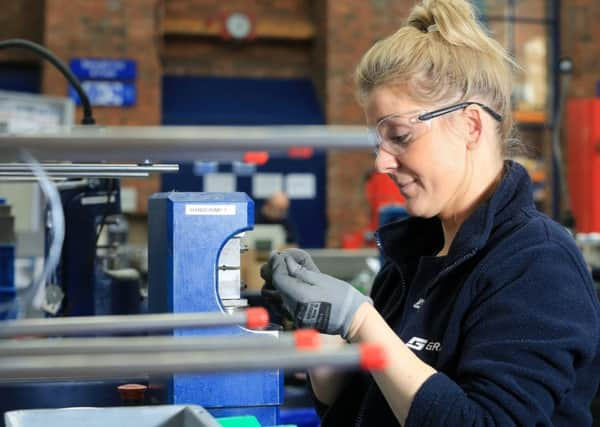Yorkshire’s small firms see a rise in the employee ownership model


Yorkshire accounts for 7.6 per cent of employee owned businesses in this country, according to figures released by the Employee Ownership Association (EOA).
Employee owned businesses contribute £30bn to GDP and employee 200,00 employee owners across 370 businesses, the findings released for Employee Ownership Day last week showed.
Advertisement
Hide AdAdvertisement
Hide AdDeb Oxley, chief executive of the EOA, said: “With the great momentum created by high profile transitions such as Riverford Organics and Richer Sounds being universally welcomed by politicos, business organisations and commentators alike, it feels like we are at a tipping point for the sector.”
The EOA published two new reports - The White Rose Centre for Employee Ownership Report and the annual EOA Top 50 Report.
Both studies reflect the continued growth of the employee ownership sector, with 18.5 per cent representing the best year of growth for this type of business model, and its impact on the UK economy.
The findings complement the outcomes of last year’s Ownership Dividend report, which was published following a year-long national inquiry into employee-owned businesses in the UK. The Ownership Dividend illustrated how the employee ownership sector can provide solutions to many of the key challenges currently facing the UK economy such as productivity and reducing inequality.
Advertisement
Hide AdAdvertisement
Hide AdIn Yorkshire there are 17 employee owned businesses employing 4,000 employee owners who have a stake and a say in how the business operates.
One such business is manufacturer of suspension systems for building services Gripple. The Sheffield-based firm was founded by Hugh Facey OBE in 1989 and has around 700 staff across the world with 550 of those in Yorkshire. Every staff member has to buy £1,000 of shares in the company after 12 months of employment.
These shares can be traded every quarter in an internal market that takes into account the performance of the company.
Mr Facey said the underlying motivation for going down this route is “to ensure the business lasts and lasts”.
Advertisement
Hide AdAdvertisement
Hide Ad“I would recommend it to anybody,” he says, “because it is a fantastic model.”
While Gripple is an example of direct employee ownership new legislation in the Finance Act 2014 also enabled businesses to set up Employee Ownership Trusts (EOTs).
Trusts provide a Capital Gains Tax exemption when an owner sells a minimum of 51 per cent of the business to an EOT.
Employees can also benefit as bonus payments made through EOTs are tax-free up to £3,600 per employee every year.
Advertisement
Hide AdAdvertisement
Hide AdLeeds-based Union Industries, which is employee-owned through a trust, earlier this year gave its staff a £3,500 bonus that was tax-free.
Andrew Lane, managing director of Union Industries, which employs around 85 staff, believes employee ownership is a fairer model with everyone enjoying the benefits.
“When we generate wealth we share that wealth amongst the people who generated it,” he said.
Emma Hardy, MP for Hull West and Hessle, said thhat she felt employee-owned businesses “tend to align the interests of owners, managers and workers, uniting people behind a shared goal”.